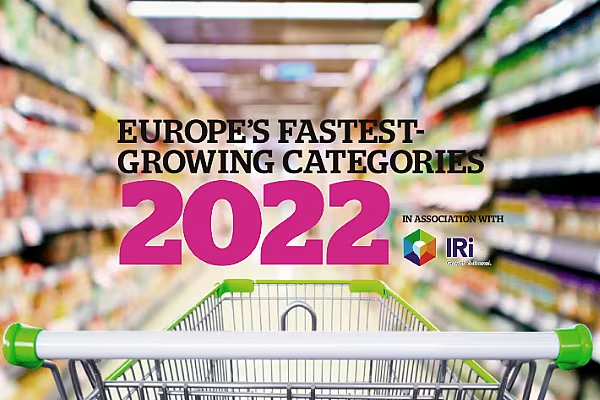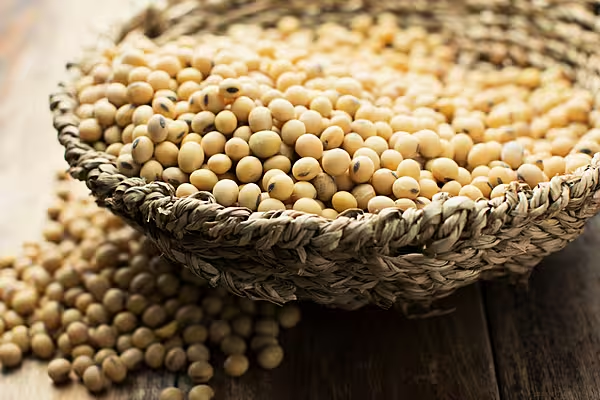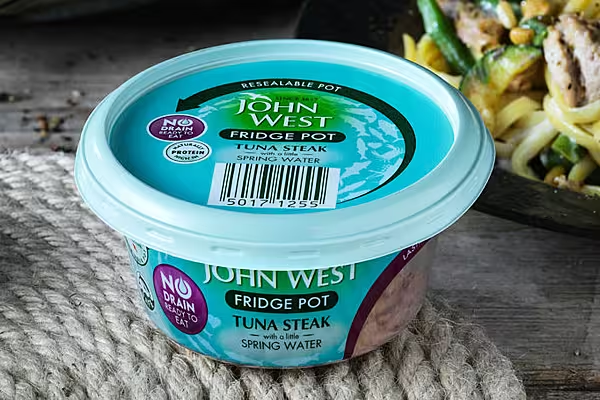ESM's annual Europe's Fastest-Growing Categories report, in association with IRI, examines how the biggest grocery categories were affected by two years of pandemic restrictions and changing consumer habits… and what the future holds. Read the full report in the March/April edition of ESM.
In the five years that ESM has been publishing the Europe’s Fastest-Growing Categories report, produced in association with IRI – a global leader in Big Data, predictive analytics, and forward-looking insights for consumer, retail and media companies – the retail sector has had to deal with many unprecedented challenges, not least a global pandemic that finally appears, two years on, to be on the wane.
However, the road ahead is far from clear, with inflation on the rise around the world, not to mention supply chain bottlenecks, labour shortages, and an escalating conflict in Ukraine that could well shape the socio-political landscape for some time. In short, disruption is likely to be the ‘new normal’ for many years to come.
About Europe's Fastest-Growing Categories
The Europe’s Fastest-Growing Categories report shines a spotlight on the performance of the biggest grocery categories across seven markets over the past year – France, Germany, Greece, Italy, the Netherlands, Spain, and the UK – as well as examining the subcategories that are seeing the most growth, year on year.
European consumers have been through something of a maelstrom over the past two years, and, at first glance, this year’s report appears to reflect that. While 2020 saw a surge in almost all grocery categories – in some cases, by close to double-digit percentages – 2021 saw sales remain elevated due to prolonged restrictions, the closure of the HoReCa channel, and pandemic-era shopping habits becoming habitual.
In Italy, FMCG sales were up by 2.1% last year, following on from what was already a record-breaking 2020, while in Germany, sales rose by 2.5%, and in Greece, sales rose by 0.8%. Spain (down by 0.4%) and the UK (down by 0.3%) were roughly on a par with the previous year, while France (down by 1.0%) and the Netherlands (down by 1.8%) saw value sales decline, however, given the high sales gains of 2020, this is only a minimal correction.
It’s also unsurprising to note that some of the categories most associated with the pandemic dropped back somewhat, as the initial ‘panic stage’ subsided. These corrections were most noticeable in the Household category – few if any consumers still talk about stocking up on toilet paper these days – as well as Frozen, albeit with some anomalies.
In Greece (+4.7%) and Italy (+2.6%), Frozen sales continued to grow, having seen double-digit sales growth the year before. Elsewhere, the continued closure of bars and restaurants into a second year led to noticeable spikes for the Alcohol and Drinks categories. In the UK, for example, the Alcohol segment saw value sales rise by 13.7% – ahead of any other macro-category.
Understanding Inflation
IRI recently published a study, Beyond the Headlines: A different mindset for a different inflation, to explore the areas in which current inflationary trends are having an effect, and what approach retailers and FMCG leaders must take to mitigate its impact. An accompanying webinar can be viewed here: bit.ly/348Hy3u.
“The outlook for this year suggests we are sailing into choppy macroeconomic waters,” says Ananda Roy, senior vice-president of strategic growth insights at IRI International and author of the study.
“Looking at past inflationary events, we begin to understand how sustained inflation can affect consumer choices, depending on income and based on price sensitivity and perceived value. In response, manufacturers and retailers have tended to respond by applying well-established revenue management principles, but with people evaluating where they shop, how much and how often they buy and consume, and whether to ‘uptrade’, defer a purchase, or even to leave a category altogether, brands and retailers need to better understand these changing needs.”
Mitigating The Impacts
As part of its study, IRI analysed 40 brands that have successfully mitigated past inflationary periods, in order to illustrate how businesses can be more resilient within their categories. It found that many high-performing brands think of inflation as an opportunity because consumers are actively re-evaluating their consumption habits and relationships with brands.
In response, said brands are likely to realign their marketing portfolios, pricing, distribution, revenue management, and brand mix, to ensure that they are in the right markets, with the right product, at the right price.
In addition, brands may choose to ‘invest in the trough’ – in other words, adapting in the short term, but staying consistent in the long term. This may include what seems like counter-intuitive behaviour, such as reducing innovations, partnering with rivals, and investing more in trade promotions. However, said brands will never compromise on their promise – quality, trust, ethics, and sustainability goals are irreplaceable.
High-performing brands recognise that the premium, mainstream, and private-label channels are all equally vulnerable to the effects of inflation and recession. This includes price increases due to unpredictable factors, the threat of price wars, consumer up- or down-trading, and lack of availability in the right stores.
IRI’s analysis also incorporated a survey of 3,000 consumers across 12 countries – also discussed during the webinar – which found a disconnection between consumer optimism and the situation on the ground. It found that while 91% of respondents expect the price of goods and services to rise over the next six months (and just 7% expect prices to go down), more than two thirds also feel that they will be ‘significantly or somewhat better off’ over the next six months.
All of this is likely to have a bearing on the situation at the tills, and it will inevitably play a role in shaping category performance across the grocery landscape. The disruption of recent years means that retailers and brand owners alike have been forced to adapt and reconfigure their operations quite extensively – something that is likely to continue as the decade progresses.
Read the full Europe's Fastest-Growing Categories Report, including a country-by-country analysis, in the March/April edition of ESM.
About IRI
IRI is a leading provider of big data, predictive analytics and forward-looking insights that help CPG, OTC health care organisations, retailers, financial services and media companies grow their businesses. A confluence of major external events — a change in consumer buying habits, big data coming into its own, advanced analytics and personalised consumer activation — is leading to a seismic shift in drivers of success in all industries.
With the largest repository of purchase, media, social, causal and loyalty data, all integrated on an on-demand, cloud-based technology platform, IRI is empowering the personalisation revolution, helping to guide its more than 5,000 clients around the world in their quests to remain relentlessly relevant, capture market share, connect with consumers, collaborate with key constituents and deliver market-leading growth.
For more information, visit www.iriworldwide.com.
© 2022 European Supermarket Magazine – your source for the latest retail news. Article by Stephen Wynne-Jones. Click subscribe to sign up to ESM: European Supermarket Magazine.














